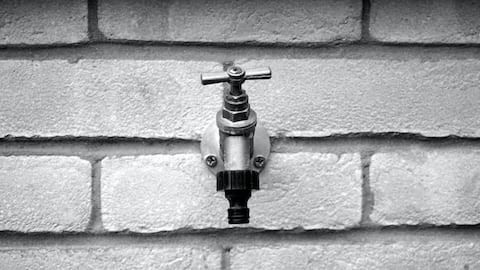6 ways to manage water sustainably at home
What's the story
Your home, the epicenter of daily activities, holds immense potential for transformative change. Imagine slashing your water bills, minimizing environmental impact, and embracing a lifestyle that marries comfort with conservation. It is all possible. This journey begins with practical strategies for managing water sustainably at home. Mr. Gurmit Singh Arora, national president, Indian Plumbing Association suggests six such strategies you can employ at home.
Repair leaks
Repair leaks promptly
One of the key things to do is keep a check on your plumbing system. If you find any leakage, make sure to fix it immediately. "If ignored, these dripping taps, valves, or pipes can lead to significant water waste," says Arora. Routinely inspect your home for leaks in faucets, pipes, and toilets. Addressing leaks promptly can prevent substantial water loss.
Appliances
Use water-efficient appliances
Reduce your overall water consumption by installing water-saving devices such as low-flow showerheads and sensory faucets. "These cutting-edge devices let you efficiently preserve water while using them daily because they are made to lower the flow rate of water without sacrificing performance," says Arora. Similarly, consider upgrading to energy-star-rated dishwashers and washing machines that are designed to use water more efficiently during their cycles.
Rainwater
Collect rainwater
Using rainwater for watering plants or washing utensils, offers a sustainable substitute for using potable water. "You may collect rainwater by setting up a rain barrel in your garden or on your terrace," suggests Arora. This collected rainwater is a helpful resource for watering your plants because it lessens the pressure on traditional water sources and promotes sustainable water usage habits.
Intuitive methods
Use intuitive methods for gardening
Irrigation in gardens is one water-intensive method. A clever strategy to mitigate this is by employing smart irrigation systems and practices. "Reduce waste by using drip irrigation systems, which provide water directly to the roots of your plants," suggests Arora. Similarly, water your plants early in the morning or late evening when it's cooler outside, to reduce water evaporation.
Water elements
Cut down water elements
Even though ponds and fountains improve landscaping's aesthetic appeal, they often waste a lot of water. Properly research before adding one. "If you decide to add a water feature, be sure it is made to recycle water to reduce its impact on available water supplies," says the expert. To further minimize evaporation, consider placing it in a shaded spot.
Recycled water
Utilize recycled water
"One useful strategy to reduce dependency on freshwater resources is to investigate recycled water sources," says Arora. Implement greywater recycling systems to treat and reuse water from activities like bathing, laundry, or dishwashing for non-potable purposes. "After being treated to certain standards, grey water can be used for industrial processes, gardening, and toilet flushing in addition to potable uses," he suggests.
